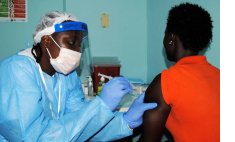Feedback/Comments from Our Readers
|
 Comments, questions and feedback is always welcome. Comments, questions and feedback is always welcome.
|
|
Thanks to everyone for taking their time to come and join Global Health Rounds with us this year. With everyone's busy day to day schedule we are going to wrap up this year's Academic year. We look forward to the next upcoming academic year.
We're always looking for new speakers and ideas for topics for Global Health Rounds for the new coming up academic year in the Fall 2018. If you have speakers or topics, please contact Cheryl Knowles at GHFoMD@ualberta.ca. |
|
Thanks for Everyone's Support in the Our Rich Man Poor Man Event 2018
|
The Global Health Program of the Division of Community Engagement along with our partners the School of Public Health and Students Invested in Health Association (SIHA) would like to thank everyone who came to Rich Man Poor Man 2018.
Thank you to the medical students who provided musical entertainment for the evening. Dr. Jane Namatovu, Chair of the Department of Family Medicine at Makerere University in Kampala, Uganda, shared information about initiatives are her medical school and updated us on the value of the partnership between Makerere University and the University of Alberta. Money raised at this event supports the global health initiatives of the three partner organizations.
|
|
‘We’re Out of Options’: Doctors Battle Drug-Resistant Typhoid Outbreak
|
 The first known epidemic of extensively drug-resistant typhoid is spreading through Pakistan, infecting at least 850 people in 14 districts since 2016, according to the National Institute of Health Islamabad.
The typhoid strain, resistant to five types of antibiotics, is expected to disseminate globally, replacing weaker strains where they are endemic. Experts have identified only one remaining oral antibiotic — azithromycin — to combat it; one more genetic mutation could make typhoid untreatable in some areas.
Researchers consider the epidemic an international clarion callfor comprehensive prevention efforts. If vaccination campaigns and modern sanitation systems don’t outpace the pathogen, they anticipate a return to the pre-antibiotic era when mortality rates soared.
“This isn’t just about typhoid,” said Dr. Rumina Hasan, a pathology professor at the Aga Khan University in Pakistan. “Antibiotic resistance is a threat to all of modern medicine — and the scary part is, we’re out of options.”
To read more about this article go to https://www.nytimes.com
|
|
Are Fake Drugs The Reason Malaria Sickens Millions a Year?
|
|
If malaria is a curable disease with effective treatment, why does it still kill so many?
To read more about this article go to https://www.smithsonianmag.com
|
|
Ghana, Kenya and Malawi to pilot world's first malaria vaccine
|
|
Last year, more than 200 million people around the world were affected by the disease.
Most of those cases were reported in Africa.
Al Jazeera's Fahmida Miller reports from Kenya's Kisumu County.
To read more about this article go to https://www.aljazeera.com
|
|
For better health, let communities take the pulse and the purse strings
|
 Invariably, the people best placed to decide what help they need to stop their children catching malaria or to avoid another pregnancy are those confronted with the risks on a daily basis.
Yet much more needs to be done to hand control to communities who understand what would improve their own health and wellbeing, said speakers in a panel discussion on innovation in healthcare, hosted by Zilient.
The Ebola outbreak that swept through Guinea, Liberia and Sierra Leone in 2014-2016, killing around 11,300, blindsided everyone, including governments and international aid agencies.
But local people quickly realised how the potentially fatal disease was being spread, and found home-grown ways to quarantine victims and cope with the devastating outbreak, said Richards, an anthropologist and university professor who has worked in West Africa for over 40 years.
To read more about this article go to http://news.trust.org/item/
|
|
STD Awareness: Fighting Cervical Cancer Across the World
|
Tomorrow kicks off World Immunization Week, a reminder that, just as disease can cross borders, so should our efforts to prevent it. Especially when we have an effective vaccine for one of the world’s top causes of cancer — but the people who need it most are less likely to get it.
Almost 90 percent of cervical-cancer deaths strike women in developing countries, where it is the second-most common cancer among women. In fact, over vast swaths of Africa, cervical cancer is the No. 1 cause of cancer death in women. (In the United States, it doesn’t even crack the Top 10.) While cervical cancer rates are holding steady in the developed world, in the coming decades they are projected to increase sharply in less developed regions.
Since 2006 there has been a vaccine for human papillomavirus (HPV), the virus that causes cervical cancer. Unfortunately, while this vaccine is making impressive strides in the developed world, it is almost out of reach in the developing world, where it could save the most lives. To fully realize this vaccine’s potential, it needs to be distributed worldwide — not just within rich countries that can afford it.
|
|
|
|
Save the Dates of Local Events!
|
Global Health Rounds
April 23, 2018
Noon - 12:50
Room: 1-182 ECHA
|
|
Conferences, Symposiums & Lectures
|
Save this link to your favorites as I update it daily will all events, symposiums, etc., just click here.
PGASUS Conference 2018
"From Evidence to Action"
|
|
Call for Abstracts/Submissions
|
|
Newsletter & Special Journal Editions
|
|
|